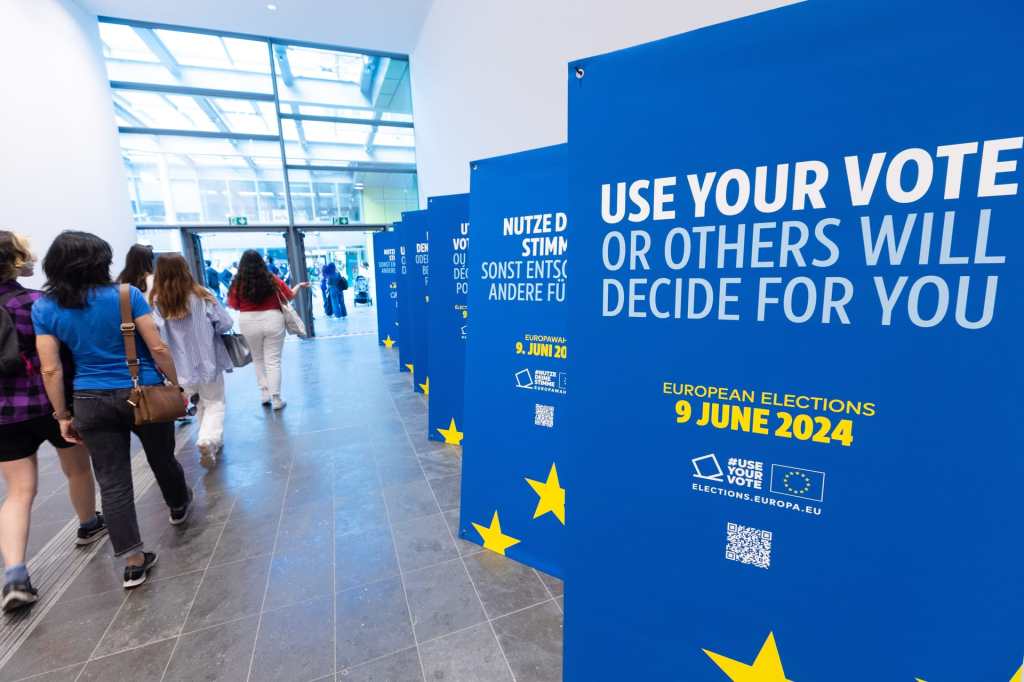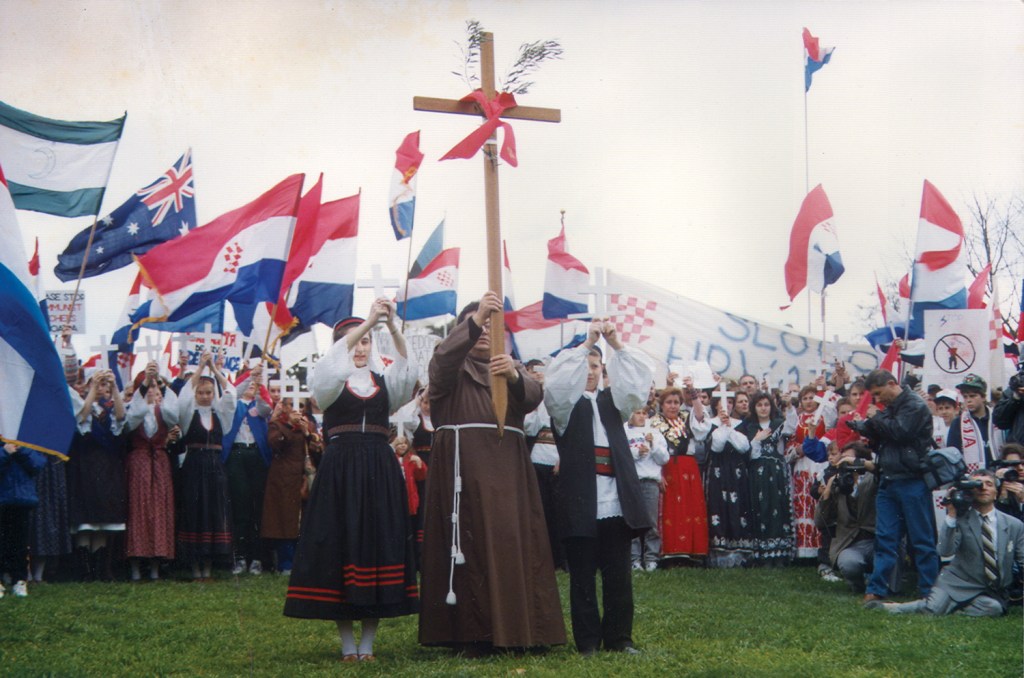
The steady rise of ultra-conservative and far right-wing parties has been especially pronounced in the EU’s founding countries at the European Parliament elections this past weekend. The results of these elections are glaringly clear across the EU as the right wing harvested the biggest winnings while the left-wing greens and the liberals recorded an historic drop in the number of representatives. The latter results were not, however, recorded for Croatia where the right wing or patriotic parties failed to achieve the results that suggest significant changes in the political outlook across the country. Nothing in essence changed for Croatia – the ruling HDZ/Croatian Democratic Union and the largest opposition SDP/ Social Democratic Party jointly scooped up 10 out of 12 possible representative seats in the European Parliament. But, then again, with the pathetically low voter turnout in Croatia, just 21.35%, the grossly biased mainstream media, one cannot call the elected candidates for Croatia as true representatives of Croatian voters. Croatia thus saw exceptionally low voter turnout levels, setting a new record of low voter turnout across the 27 member states of EU.
Overall, European Union Parliament elections of 2024 did see the highest voter turnout in 30 years, with 50.97% of the 357 million eligible citizens participating in the election. This is a slight increase compared to the previous elections in 2019 (50.66%), suggesting the politically charged context served as a catalyst for participation.
With 51.30% voter turnout in France, President of the anti-immigration and far right party National Rally/RN Marine Le Pen celebrated a historic win. Its highest scores were in the north-eastern département of l’Aisne, where it won over 50%, and even 60% in some rural villages, compared with a 31% score nationwide. This result sent the French President Emmanuel Macron into a damage control mode and he announced last Sunday that he would dissolve the French National Assembly and call for a snap election in the wake of disastrous results for his left-leaning centrist Renaissance party in the European parliamentary elections.
In Italy, 48.31% voter turnout saw Prime Minister Giorgia Meloni who headed the conservative right wing Fratelli di Italia party list also celebrating a significant win.
In Germany, the far-right Alternative for Germany (AfD) party took second place with the conservative alliance of the Christian Democratic Union/CDU and the Christian Social Union/CSU, which are in opposition at the federal level, topped the poll with about 30 percent of the vote. The leftist Social Democrats in Germany and its Chancellor Olaf Scholz finished in third place with 14 seats won.
In Austria, the far-right Freedom Party gained nearly 26% of the vote, topping a nationwide ballot for the first time. The far-right Flemish nationalist party Vlaams Belang took the largest number of votes in Belgium.
The far right also performed well in the Netherlands, with Geert Wilders’s anti-immigration Party for Freedom projected to win six seats, just two seats shy of the total picked up by centre-left and green parties.
In Hungary, Prime Minister Viktor Orban’s nationalist Fidesz won the most votes but although the win is substantial Fidesz has lost notable ground this time around compared with the 2019 elections: 52% down to 44% votes.
Left-wing and green parties had a better showing in the Scandinavian countries, with far right and populist parties in Sweden, Denmark and Finland seeing their vote shares decline. After five years during which Brussels made the Green Deal its signature issue, voters turned against ecologically minded parties and voted their representatives out of the Parliament. The Green’s most substantial losses came from the delegations representing France and Germany, which had accounted for half of the movement’s strength in Parliament.
The common thread in the election campaigns of the right-wing and conservative parties have been strong anti-immigration policies and strong election results in their favour suggest that this problem and concern looms large in the EU. And so, if the far right were to form a single group it would be the second largest force in the European Parliament, behind the traditionally dominant European People’s Party/EPP. For this to occur rivalries and disagreements that has been noticeable among this group in recent past would need to be ironed out but, even without this the sheer size of the far-right now defining the parliament political climate will undoubtedly reap enormous pressure on the way many EU policies will head, and others dissolve. Thus, with a more right-leaning legislature, the EU’s overall political centre will probably move right-ward. With this we are likely to see the effect of less EU involvement in each member state and more national control of each state over key policies or a hardening of the EU’s position on critical issues such as the green transition, Ukraine, or immigration. Unless at least two largest parliamentary groups or forces (e.g. Far right and EPP) get to talk to each other, work with each other, the incoming European parliament will likely be more polarised, and fragmented than in the past and float in a somewhat rudderless manner. The first test in this regard involves European Commission President Ursula Von der Leyen, who is a member of the EPP group and needs a parliamentary majority to secure the second term she said she wants. If she ends up relying on parts of the far-right camp to get re-elected as EC President, this will send a strong signal about EPP’s willingness to work with forces it traditionally considered beyond its plate.
The first plenary session of the new legislative term will take place from 16 to 19 July in Strasbourg. Before that session, the newly-elected Members will form political groups based on shared political ideas. At the first plenary, the Parliament will elect its new President, vice-presidents and quaestors as well as decide on the number of Members of European Parliament/MEPs who will be sitting in each parliamentary committee. At a later stage, MEPs will vote to elect a new President of the European Commission. Then they will assess candidates for commissioners through public hearings. The new Commission will need to secure Parliament approval in a plenary vote to take office.
The success of far-right parties in the European elections can also be seen as a reflection of the of political and social polarisation currently seen elsewhere around the world. The far right ‘surge’ in results for the European Union Parliament clearly demonstrates a trend of increasing support for anti-establishment, populist and Eurosceptic parties at both the European and national levels. As the number of Eurosceptic leaders and parties increase at national level, the positions that member states take at the European Council may change. Member states may well also step up their attempts to weaken the EU’s policy and legislative powers in favour of national processes – hollowing out the EU from within. This would pave a strengthened path to the idea of a federalised EU rather than an EU of today where individual nations play the second fiddle to the EU superiority in decision making.
As far as Croatia is concerned within the EUP constellation it is quite insignificant, small, to be able to make big waves in EU decision-making. Furthermore, Croatia within the EU has performed more as a follower than a leader or mover-and-shaker. That is on the EU level. Locally though, the increased presence in the EU Parliament of the conservative and far-right political parties across the spectrum of significant member states may indeed benefit the patriotic or right-wing parties in Croatia, who have performed poorly in elections for the past quarter century, to gain increased legitimacy and relevance, thus increasing their prospects at the next Croatian elections due in about 2028 despite the Croatian leftist-controlled mainstream media animosity and bias against them during those past years. Ina Vukic









Leave a comment